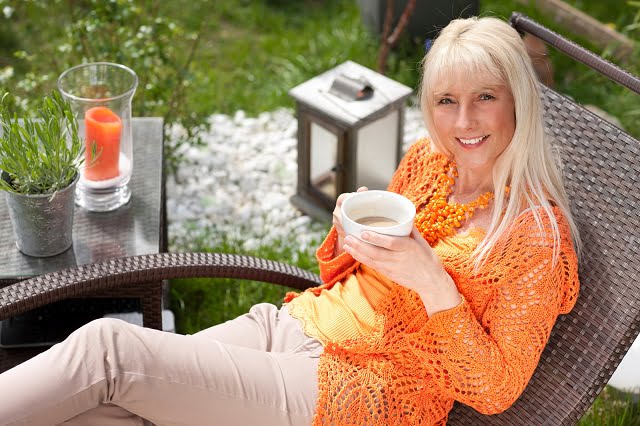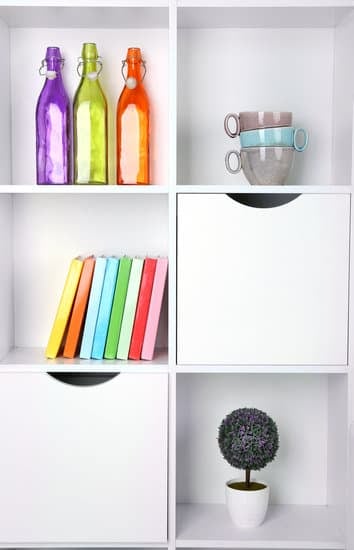Are you looking to learn how to decorate a vanilla cake at home? Whether it’s for a special occasion or just for a sweet treat, the presentation of your vanilla cake can make all the difference.
A beautifully decorated cake not only looks inviting but also adds to the overall enjoyment of the dessert. In this article, we will explore the art of decorating a vanilla cake from start to finish, providing you with tips and techniques to elevate your baking skills.
When it comes to decorating a vanilla cake at home, there are a few key factors that can take your creation from ordinary to extraordinary. From choosing the right frosting to mastering various decorating techniques, there are plenty of ways to add flair and personality to your vanilla cake.
Whether you’re a beginner or an experienced baker looking for new ideas, this comprehensive guide will equip you with the knowledge and inspiration you need to create stunning cakes in the comfort of your own kitchen.
Join us as we delve into the world of vanilla cake decoration, exploring both basic and advanced techniques that will help you turn a simple dessert into a work of art. With step-by-step instructions and valuable tips, you’ll soon be on your way to becoming a master cake decorator. So grab your apron and get ready to unleash your creativity as we embark on this delicious journey together.
Ingredients and Tools
When it comes to decorating a vanilla cake at home, having the right ingredients and tools is essential to achieving a professional-looking result. To start off, you will need a freshly baked vanilla cake as your base. Additionally, you will need frosting, which can be buttercream, cream cheese, or fondant, depending on your preference and the design you have in mind.
In terms of tools, a turntable is invaluable for evenly spreading frosting and creating smooth finishes. A spatula or an offset spatula will also come in handy for applying frosting and smoothing it out. Piping bags and tips are essential for creating decorative designs such as rosettes, borders, and writing on the cake. It’s also useful to have a sharp knife for trimming the cake layers if necessary.
When choosing ingredients for decorating your vanilla cake, consider adding flavor extracts such as almond or lemon to give your frosting an extra layer of taste. Food coloring can also be used to achieve vibrant hues when tinting your frosting for a visually stunning result. Lastly, edible decorations such as fresh fruit slices, chocolate shavings, or edible flowers can add an elegant touch to your vanilla cake.
Overall, having high-quality ingredients and the right tools at your disposal is crucial in executing beautiful decoration on your vanilla cake. By ensuring that you have everything you need ready before starting the decorating process, you can set yourself up for success in creating a visually appealing and delicious dessert.
For those who are new to baking and do not yet have all the necessary tools at hand – don’t worry. Many basic decorating techniques can still be achieved with just a few simple tools that you likely already have in your kitchen. In place of a turntable.
you can use a plate or cake stand; instead of piping bags and tips, plastic storage bags with small holes cut into one corner will suffice for basic designs.
Choosing the Right Frosting
When it comes to decorating a vanilla cake at home, choosing the right frosting is essential in bringing your creation to life. There are various options for frosting, each with its own unique texture and flavor profile that can complement the deliciousness of a vanilla cake. Here, we’ll explore different types of frosting and their respective uses to help you make the best choice for your cake.
One popular option for frosting is buttercream, known for its creamy texture and sweet flavor. Buttercream is versatile and easy to work with, making it ideal for both filling and covering a vanilla cake. It can also be easily tinted with food coloring to achieve any desired shade, making it perfect for creating vibrant decorations.
Another popular choice is cream cheese frosting, which has a tangy flavor that pairs well with the sweetness of a vanilla cake. This type of frosting is often used for carrot cakes or red velvet cakes but can also be a delightful addition to a vanilla cake. Its smooth and spreadable consistency makes it suitable for covering the entire cake or piping decorative designs.
For those looking for a light and fluffy option, whipped cream frosting is an excellent choice. Made from heavy cream and powdered sugar, whipped cream frosting has a delicate taste that won’t overpower the vanilla flavor of the cake. It’s perfect for those who prefer a less sweet frosting option.
Choosing the right frosting is an important step in decorating a vanilla cake at home. Each type of frosting offers unique qualities that can enhance the overall appearance and taste of your creation. By considering factors such as texture, sweetness level, and decorative potential, you can select the best frosting to suit your personal preferences and create a visually stunning and delectable vanilla cake.
| Frosting Type | Description |
|---|---|
| Buttercream | Versatile and easy to work with; ideal for vibrant decorations |
| Cream Cheese Frosting | Tangy flavor that pairs well with vanilla; smooth and spreadable consistency |
| Whipped Cream Frosting | Light and fluffy option; less sweet than other frostings |
Basic Decorating Techniques
Since the presentation of a vanilla cake is just as important as its taste, mastering basic decorating techniques is essential for creating a visually appealing dessert. Decorating a vanilla cake at home can be both fun and rewarding, especially when armed with the right tools and knowledge. In this section, we will explore some simple but effective decorating techniques that anyone can master with a little practice.
Crumb Coat
Before diving into the decorative frosting, it’s important to apply a crumb coat to your vanilla cake. A crumb coat is a thin layer of frosting that seals in the crumbs and provides a smooth surface for the final layer of frosting.
To apply a crumb coat, use an offset spatula to spread a thin layer of frosting over the entire cake and then chill it in the refrigerator for about 15 minutes before applying the final layer of frosting.
Simple Piping Techniques
Piping is a versatile decorating technique that can add intricate designs or simple accents to your vanilla cake. Using a piping bag fitted with different tips such as round, star, or petal tip, you can create borders, rosettes, swirls, and other decorative elements on your cake. Practice on a piece of parchment paper before piping directly onto the cake to perfect your technique.
Smooth Finish
Achieving a perfectly smooth finish on your vanilla cake is easier than you might think. After applying the crumb coat and letting it set, use an offset spatula or bench scraper to create an even layer of frosting all over the cake. Smooth out any imperfections by dipping the spatula or scraper in hot water and running it over the frosting until it reaches your desired smoothness.
By mastering these basic decorating techniques, you’ll be well on your way to creating beautifully decorated vanilla cakes at home. With patience and practice, you’ll soon be able to impress friends and family with your newfound skills in how to decorate a vanilla cake at home.
Advanced Decorating Techniques
Now that you have mastered the basic decorating techniques for your vanilla cake, it’s time to take your skills to the next level with advanced decorating techniques. These methods will elevate the presentation of your cake and impress your guests with professional-looking designs. Here are some advanced decorating techniques to help you create a stunning centerpiece for any occasion.
Advanced Decorating Techniques
- Layered Frosting: Create a layered effect by using different colors or flavors of frosting. Use a piping bag with different tips to layer and blend the colors for a beautiful ombre or gradient effect.
- Fondant Art: Experiment with fondant to sculpt intricate designs, shapes, and figures. From flower petals and leaves to intricate lace patterns, fondant allows you to create detailed decorations that will wow your guests.
- Textured Finishes: Use specialty tools like combs, textured mats, or stencils to add unique textures and patterns to your frosting. These techniques can mimic the look of wood grain, basket weaving, or even intricate lace.
These advanced decorating techniques require practice and patience, but the results are sure to impress. Don’t be afraid to experiment and push the boundaries of your creativity as you decorate your vanilla cake at home. With these techniques, you can turn a simple vanilla cake into a work of art that tastes as good as it looks.
Adding Flair With Edible Decorations
One option for adding flair to your cake is using edible flowers. Flowers such as roses, pansies, violets, or even lavender can be used to adorn your vanilla cake. Before using any flowers on a cake, it’s important to ensure they are indeed edible and have not been treated with any harmful chemicals.
You can find edible flowers at specialty grocery stores or online retailers. When placing them on the cake, gently press them into the frosting for a beautiful and natural look.
In addition to edible flowers, sprinkles are another popular choice for decorating cakes. Whether you choose classic rainbow sprinkles or more sophisticated metallic options, sprinkles can add a touch of whimsy and fun to your vanilla cake. Sprinkles can be applied in a random pattern for a playful look or strategically placed for a more polished design.
The key is to have fun and experiment with different placement techniques until you achieve the desired effect. Additionally, you can explore other decorative items like edible pearls, chocolate shavings, or colorful sugar crystals to further enhance the visual appeal of your vanilla cake.
Personalizing Your Cake
When it comes to decorating a vanilla cake at home, adding a personal touch can take your creation to the next level. Whether it’s for a special occasion or simply to show off your creativity, there are countless ways to personalize your cake and make it truly unique. From custom designs to meaningful messages, here are some tips for adding a personal touch to your vanilla cake.
Custom Designs
One of the most popular ways to personalize a vanilla cake is by creating a custom design on the frosting. This can be anything from simple patterns and shapes to more intricate designs like flowers, animals, or even personalized portraits. Using different colored frostings and piping bags, you can let your imagination run wild and create a one-of-a-kind decoration that reflects the personality or interests of the recipient.
Meaningful Messages
Another way to personalize your vanilla cake is by adding a meaningful message on top. Whether it’s for a birthday, anniversary, or any other special occasion, writing a heartfelt message in frosting can add an extra layer of sentimentality to the dessert. From simple “Happy Birthday” wishes to personalized notes or inside jokes, this is a thoughtful way to show someone you care.
Theme-Based Decorations
If you’re decorating a vanilla cake for a specific theme or event, consider incorporating relevant decorations that tie into the overall concept. For example, if it’s for a baby shower, you could use baby-themed decorations like pacifiers or rattles made of fondant.
If it’s for Halloween, you could add spooky decorations like bats or ghosts. By aligning the decorations with the theme, you can create a fully personalized and cohesive presentation that will impress both visually and thematically.
Troubleshooting
When it comes to decorating a vanilla cake at home, it’s important to be prepared for potential mishaps that may occur during the process. Even with the best intentions, mistakes can happen, but the good news is that many common decorating errors are easily fixable.
One of the most common issues is uneven frosting, whether it’s too thick in some areas and too thin in others. To remedy this, start by applying a crumb coat to the cake and then refrigerate it for about 15 minutes before adding the final layer of frosting.
Another frequent mistake is air bubbles in the frosting, which can make your beautifully decorated vanilla cake look less than perfect. To avoid this problem, try using a small offset spatula to smooth out the frosting in a gentle sweeping motion. If you do notice air bubbles forming, simply pop them with a toothpick and continue smoothing out the surface for a flawless finish.
In some cases, you may find that your decorative accents aren’t sticking to the frosting as they should. This can be frustrating, but there’s an easy solution. Before adding any decorative elements like sprinkles or edible flowers to your vanilla cake, lightly mist the surface of the frosting with water. This will create a slightly tacky surface that will help adhere the decorations more effectively.
| Common Decorating Mistakes | How to Fix Them |
|---|---|
| Uneven Frosting | Apply a crumb coat and refrigerate before adding final layer |
| Air Bubbles in Frosting | Smooth out frosting with an offset spatula and pop air bubbles with toothpick |
| Decorative Accents not Sticking | Lightly mist surface of frosting with water before adding decorations |
Conclusion
In conclusion, decorating a vanilla cake at home can be a fun and rewarding experience. Whether you are a beginner or an experienced baker, there are endless possibilities to showcase your creativity and personal style. By following the tips and techniques outlined in this article, you can elevate your vanilla cake from simple to stunning.
Remember, the key to successful cake decorating is to have the right tools and ingredients on hand. From choosing the perfect frosting to mastering basic and advanced decorating techniques, there are plenty of ways to make your vanilla cake stand out. Don’t be afraid to experiment with edible decorations such as flowers and sprinkles, or adding a personalized touch that reflects your personality or the occasion for which the cake is being made.
Ultimately, the joy of decorating a vanilla cake at home lies in the process itself. Whether you are baking for a special event or simply treating yourself and loved ones to a delicious dessert, take the time to enjoy every step of the decorating process.
With some practice and patience, you’ll soon discover how satisfying it can be to create beautiful and delectable creations right in your own kitchen. So go ahead and let your imagination run wild as you explore how to decorate a vanilla cake at home.
Frequently Asked Questions
How to Jazz Up a Vanilla Cake?
Jazzing up a vanilla cake can be done in various ways. You can add different flavors to the batter like almond or lemon, or even swirl in some fruit compote. You can also try a flavored syrup soak or layer on some unique fillings like caramel or fruit preserves.
How to Decorate Vanilla Birthday Cake?
When decorating a vanilla birthday cake, consider using colorful and fun frosting to create designs or patterns. You can also add sprinkles, edible glitter, or chocolate shavings for extra flair. Using fresh fruits or edible flowers as garnish can also make the cake more visually appealing.
How to Decorate Vanilla Cake at Home Without Cream?
Decorating a vanilla cake at home without cream is still possible using alternatives like ganache, fruit coulis, or powdered sugar glaze. Fresh fruit slices, edible flowers, and chocolate curls can also be used as non-cream decorations to enhance the appearance of the cake while keeping it light and fresh.

Hello, lovely readers! I’m Sheila Collins, and I’m delighted to be your trusted guide on this exciting journey of home improvement, design, and lifestyle. As the founder and editor-in-chief of Home Guide Blog, I’m passionate about all things related to homes, and I’m here to share my knowledge, experiences, and insights with you.




